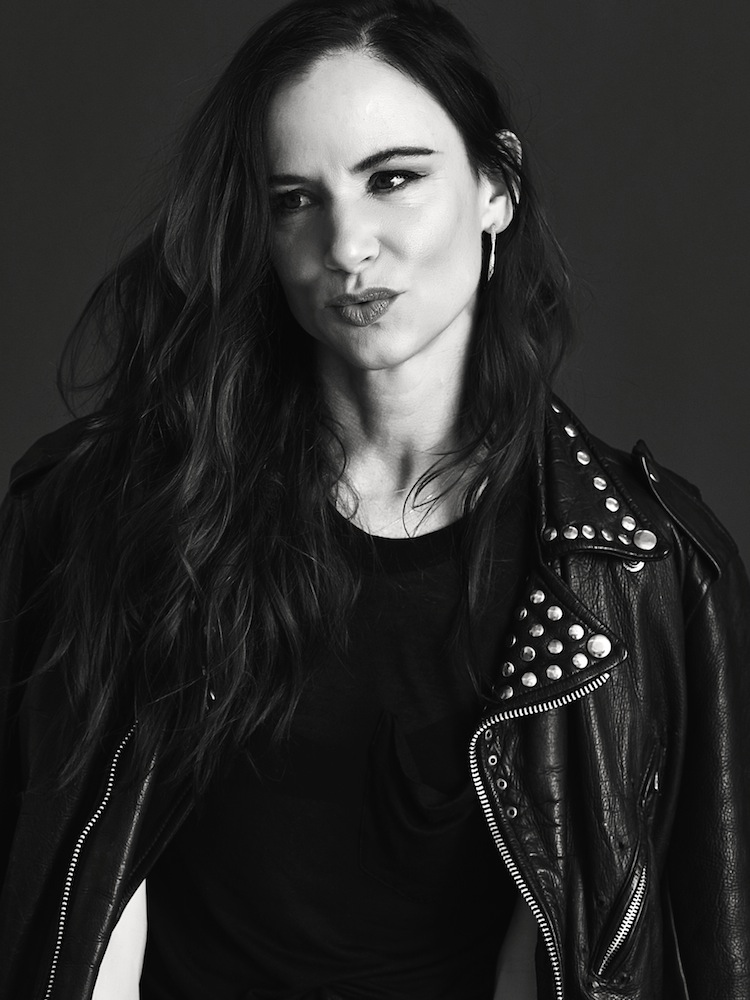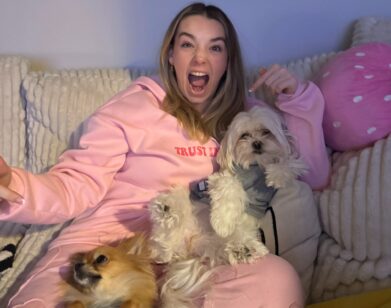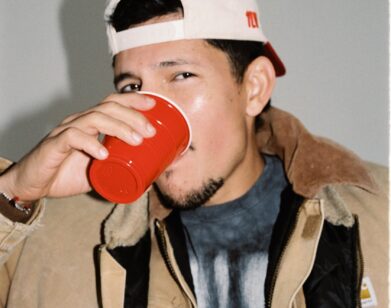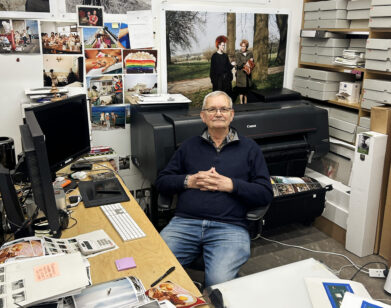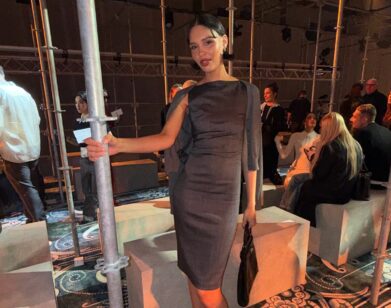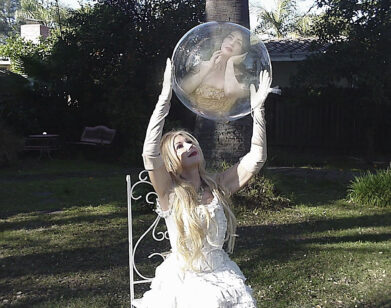The Hard Lovin’ Ways of Juliette Lewis
JULIETTE LEWIS IN NEW YORK, APRIL 2016. PHOTOS: JAMES RYANG. HAIR: JEROME CULTRERA/SEE MANAGEMENT USING BUMBLE AND BUMBLE. MAKEUP: PAMELA COCHRANE/BRIDGE ARTISTS FOR CHANEL.
Since sucking the thumb of Robert De Niro in Scorsese’s 1991 thriller Cape Fear, Juliette Lewis has etched herself into America’s filmic memory. Her cinematic career, which began at age 12, includes roles ranging from a crazed murderer in Oliver Stone’s Natural Born Killers to her recent turn as a detective on ABC’s Secrets and Lies. Acting was Lewis’ primary focus until she was just shy of 30 and undertook another medium entirely: music. It was neither a whim nor an afterthought, and Lewis quickly silenced skeptics by becoming the frontwoman of Juliette and The Licks, the David Grohl-endorsed rock band that released its debut EP in 2004.
Lewis’ story, that of a rebellious artist seeking connection and fulfillment, is the subject of the documentary short Hard Lovin’ Woman. Directed by Michael Rapaport, Hard Lovin’ Woman recently premiered at Tribeca Film Festival and is now available on-demand via Red Bull TV. After Lewis and Rapaport met on the set of Quentin Tarantino’s True Romance through Lewis’ then-boyfriend actor Brad Pitt in the early ’90s, they shared a cathartic concert-going experience. “We went to a Rolling Stones concert and we both found religion in the form of rock ‘n’ roll,” Lewis recalls fondly. That very spirit of impassioned reverence for music is central to Lewis’ performances and songwriting, and is what makes the film’s title (which is borrowed from Lewis’ song “Hard Lovin’ Woman”) so apt.
“That song, to me, is when I felt that I was really born as a songwriter, because it’s such an honest song,” Lewis tells us. “I had always wanted to write a blues song but was never ready because you have to just let it sit with you. You have to be in a place where you’re struggling to find something or in tune with what you’ve lost,” she continues. “At that point, I had gone through a breakup and my band broke up. The song was a declaration of owning and accepting all that you are and finding empowerment within that, but still having to struggle, and loving things hard, too hard!”
Now, at age 42, Lewis continues to act, write, and perform, and just released “Hello Hero,” her first new song since Juliette and the Licks reunited for a show last summer. We spoke over the phone while she was on the bus in Berlin headed to the first sound check of her European tour with the Licks.
HALEY WEISS: I read that Ted Newsome was the first person that approached you about making the documentary. What was your first reaction when he told you that they wanted you to be the subject?
JULIETTE LEWIS: It was incredible in that it was this perfect union of family, friends, and people who have a similar objective in art. I’ve known Ted for a long time and when they mentioned Mike Rapaport I was over the moon because I’ve known him for 20 years and he’s such a great documentarian. He has an unconventional style, it’s very fresh and it’s very cinematic. We were excited about making our own artistic expression of what drives an artist. I gave him all of this footage I had and when they made it 30 minutes that seemed awesome because in the future I’d like to show it and play a show afterwards. It’s a new way to approach the rock show and it’s also blending my two worlds. I know in interviews they talk about how one negates the other, but for me, both of them feed each other and empower each other.
WEISS: Was it always clear that rock would be your genre when you went into music?
LEWIS: I think so because for me, there’s this diversity and range in it… My main objective was finding my individuality as a vocalist. When I first started, I wrote some songs with Linda Perry. She’s so instrumental in a lot of artist’s lives, listening to you and then helping you write songs that are you, that bring the most of what you are out, whereas a lot of producers might put their stamp on you. I gained confidence because I’m less of a straight-up, traditional vocalist. I like people like Tina Turner, Chrissie Hynde, Debbie Harry, and Stevie Nicks; you only hear that person in their voice, they sound like nobody else. As a songwriter, though, I’ve written with The Prodigy, DJ Fresh in the U.K., and on dance tracks that are totally different so just like as an actor, I don’t like to be pegged to one thing. That’s why the new music that I did with Isabella Summers [of Florence and the Machine, which will be released as an EP this year,] is really exciting because it’s much more base and beat driven than my Licks stuff which is more guitar driven.
WEISS: How are you feeling about starting the European tour? Are you looking forward to getting back on stage?
LEWIS: Yeah! I was doing my TV show last year and sometimes I go stir crazy so I had my booking agent book a tour and for me it was just to test the waters like, “Okay, is there an audience? Are they going to want to come and see me again?” And then I started selling shows out. Right now there’s four sold out shows out of 10 and most of them are 80 percent presold, so all of that is reassurance, that means you potentially have a future. I always approach it cautiously in that I never think I have success even when I have it, for better or for worse.
WEISS: I know you made a solo album, Terra Incognita, in 2009. What made you decide to get the band back together?
LEWIS: We’d all stayed connected over the past years but it was really because we just got in a room and I said, “I feel like I could sing these songs again.” For me, going away from the Licks was because I didn’t connect with the songs. A lot of them are really full on and very demanding, and even though I put on that kind of show, you have to stay connected to the songs you’re singing to keep singing them. After years, some of them felt really good again. But it’s not really a reunion gig; I’m using the Juliette and the Licks moniker because it represents a kind of big spirited rock ‘n’ roll band, but I only have Todd Morse with me who I formed the band with 10 years ago. He’s my oldest collaborator. My other guy went solo, and with the rhythm section, I couldn’t pass up the opportunity to work with Brad Wilk [of Rage Against the Machine] and Juan Alderete [of the Mars Volta], because they’re both incredible. So that’s my band coming out now, but they’re all in other bands so this might be this line up for this tour and I might work with other people later. I’m just going with the flow.
WEISS: What does music give you that acting doesn’t and vice versa?
LEWIS: Well, music is kind of my everything. I can write a song in the back of the bus, where I am right now, or in my living room, and I can perform it that night and have an instant reciprocal exchange—an emotional, impactful exchange—and it’s a less technical medium. It’s a pure expression from my soul to other souls.
With movies and TV, storytelling, it’s a different medium. I really love it, but I’m one part of many, many pieces of that puzzle and a lot of it is out of my control. A lot of people shortchange it and say, “Oh, so music is more in your control,” and it’s like, “No! There are so many things out of my control.” I’m just trying to make a go of it in a time when music is practically free. What’s exciting to me is the live show medium itself; it’s the last untouchable medium. I don’t think it will ever go away. It has gone on from the beginning of time with little performances around a campfire, I’d imagine, like cavemen doing some chants, rhythm, and sounds, beating on things. [laughs]
WEISS: You have this raw energy on stage and you’ve spoken about performing in terms of trying to reach a level of transcendence, so I wonder if that level of intensity is almost meditative for you?
LEWIS: Absolutely. God, sometimes it’s necessary. I didn’t realize how necessary it was to my soul or feelings of well being. I went years not doing it and once I started singing and expressing in that way, I thought, “No wonder I’m melancholy half of the time because this is where my soul comes alive in the deepest sense.” Also, the connectivity with people is the biggest thing. In the documentary when I said, “Rock ‘n’ roll to me is a rebellion against the sterile pedestal culture of movies,” what I meant by that is early on, I got so segregated and alienated from regular existence by having fame in my teens. It’s a really sorrowful place to live when you don’t know how. Doing music, it was almost a salve to that problem. It was like, “Here I am. I can be in this room. We’re all in this together and we’re feeling together.” Not everybody is harmonious in that room but if you’re doing your job right you become a unity and it’s beautiful. I’ve been in audiences when I’m just a fan watching another and I like that unity as well.
WEISS: You mentioned loving musicals as a child in the film. Did you pursue acting first as a conscious choice or did you fall into it because your dad, Geoffrey Lewis, was already in the industry?
LEWIS: I think early on I avoided singing because it was so personal and I didn’t know how to sit in that intimacy. I wrote songs when I was little and I wrote a journal, but I don’t think I knew how to let that truth come out yet. In acting, you have a writer, a director, a character—you’re working through being another person—and the irony I always tell people is when I acted early on as a teenager, it actually kept me out of trouble. [laughs] Nobody would ever think, “Oh, get into acting so you can live the straight and narrow path,” but it gave me a sense of discipline and focus. I felt good that I knew how to do something and I got away from a troubled gang I was hanging out with. My dad paved the way in that area.
WEISS: What was it like to revisit the clips in the film that are from your childhood and teen years? Did your old self surprise you?
LEWIS: That was shocking. My brother has endless footage of us as kids because he had a video camera when we were growing up. The trippiest part was my younger self predicting my future path, like a truth-seer. When I’m on the roof as an 11-year-old joking but pretending to cry, saying, “I’ll never make it as a singer! Goodbye, cruel world!” It’s like, wow, what game was I playing? Where I’m struggling and not knowing if I have it? [laughs] It’s so deep.
The old footage of my dad, I always knew we were cut from the same cloth, because my dad was such a renegade and always marched to the beat of his own drum. To see where we were both dancing and being silly together, it’s too beautiful for words. I was really happy to have that.
WEISS: As an actress, you’re probably quite comfortable in front of a camera playing a character, but did being yourself in front of a camera make you nervous?
LEWIS: It’s a totally different thing. I felt so vulnerable, to answer your question. I had an element of trust in that I knew Mike would not be exploitative and I knew he would not go down a path that’s not my truth. There was a comfort there. It was like being around your friends, so that was good for starters, but even when I was promoting it at Tribeca it was so weird to be doing chat shows and promoting something that’s not someone else’s movie. It’s a part of my heart, my creative heart, but at the end of the day I’m trying to do the same thing I always want to do, which is inspire and release people and hopefully make them feel a deeper connection to themselves and other people.
WEISS: You’re quite vulnerable in the film, like when you come off the stage and talk about how you’re disappointed in your performance. Was that specific to that performance or are you generally self-critical?
LEWIS: That’s real. Sometimes I can be on a cloud and then two hours later feel really small. I think it’s expending that amount of energy; there are highs and lows to it no matter what. I like that the documentary shows [what] I’ve been struggling with, which is, “How much do you give? Is it right to obsess? Is it right to give that much?” [There’s] this idea of “I want to take care of myself,” but at the same time I want to be brave, daring, and expressive.
HARD LOVIN’ WOMAN IS AVAILABLE TO WATCH NOW VIA RED BULL TV.

